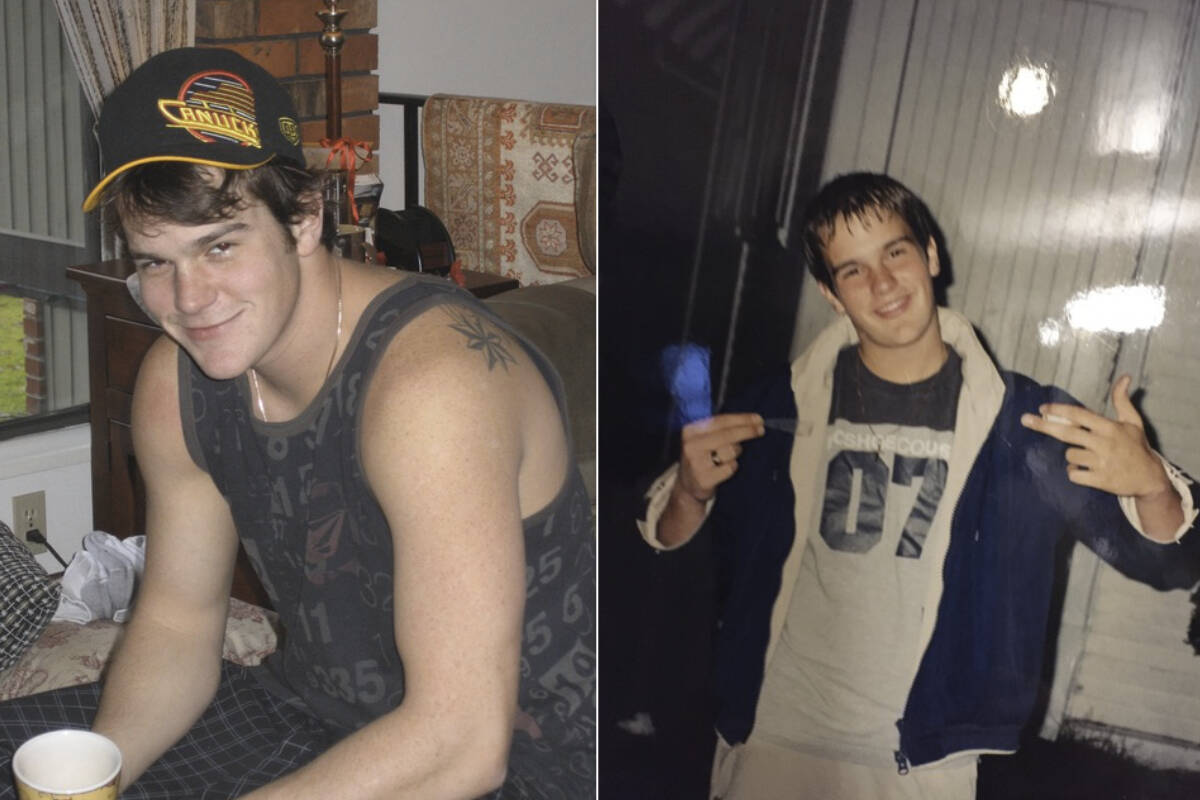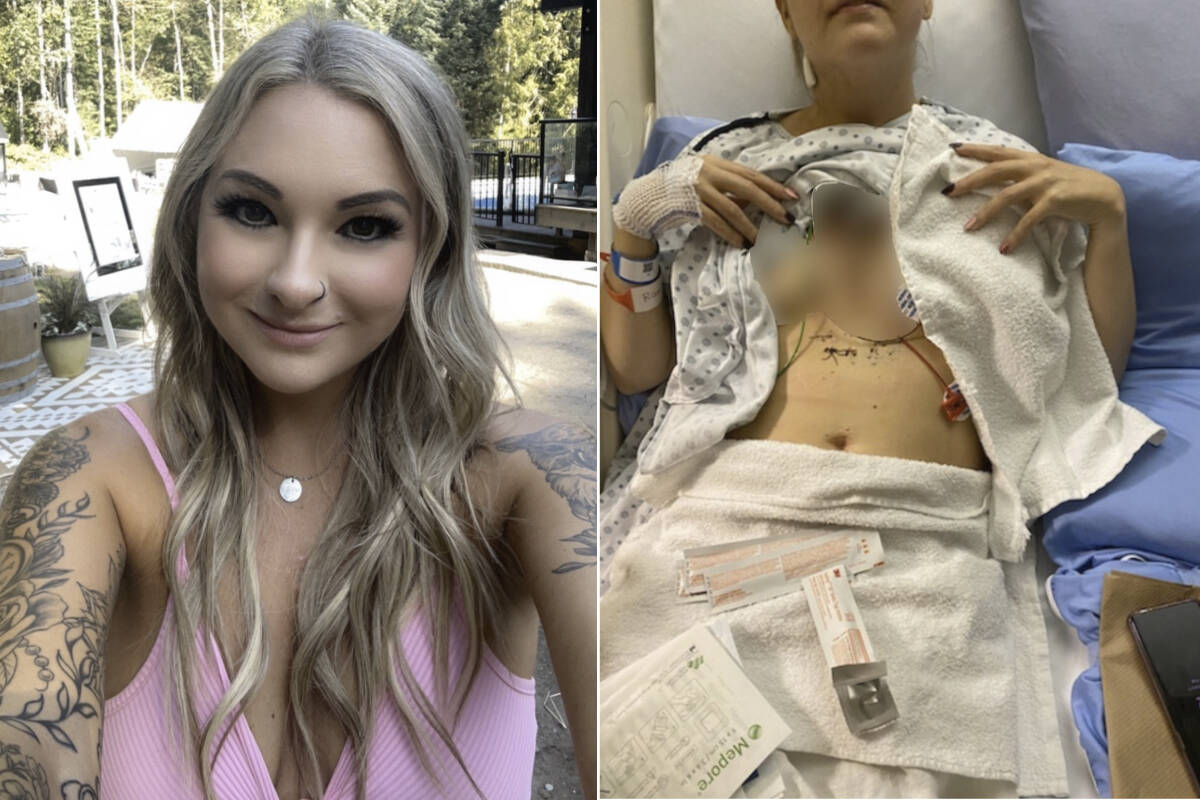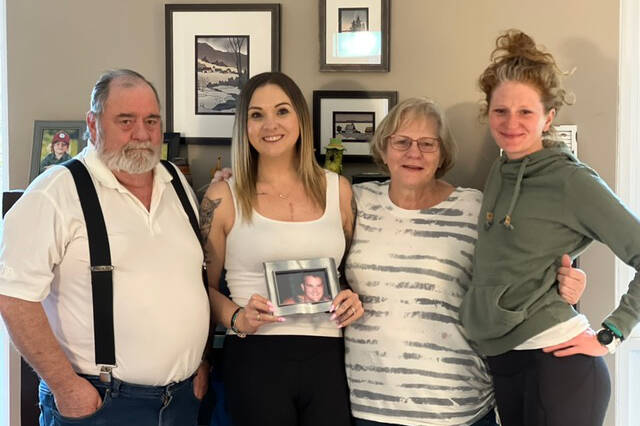Debbie Picco remembers the feeling of listening to her son’s heart beating inside another person’s body for the first time.
She had borrowed a stethoscope for the task and recalls pressing its cool metal end up against the chest of the woman she had just met. And sure enough, as Picco adjusted its ends in her ears, she heard a steady, instinctively familiar thumping.
“It’s amazing. Tommy’s still here.”
The last time Picco had been in the same room as her son’s heart was some two years earlier, when Tommy Picco was rushed to hospital after ingesting a toxic cocktail of drugs. The 36-year-old had been using opioids since his early 20s when a popped disc forced him to undergo three back surgeries. Picco says doctors prescribed her son Oxycontin, but that the pain killer wasn’t enough and Tommy gradually started taking stronger and stronger opioids.
He went through rehab in 2019 and was doing better for a time. But Tommy began using again and, on an October night in 2020, he overdosed at a known drug house in Maple Ridge. His heart stopped, an ambulance was called and paramedics rushed to the scene. They worked on him for 25 minutes and managed to resuscitate Tommy, but he never woke up.
He was taken off life support on Oct. 12, 2020. A registered organ donor, Tommy was able to gift his heart, liver and two kidneys to four people desperately in need.
“It gives me a lot of pride that Tommy could do that,” Picco said.
After her son’s death, she wrote letters to each of those four people, hoping to see for herself how Tommy’s life was being carried on.
Only one of them replied: the recipient of Tommy’s heart, Lindsay Ma.
The 40-year-old Langley mother says she bawled when she got Picco’s note and has carried it with her ever since. She was diagnosed with hypertrophic cardiomyopathy at age 21, a condition that made it difficult for her own heart to take in or pump out enough blood. At age 28, shortly after having her son, Ma went into heart failure and, with weeks left to live, was gifted her first heart transplant.
At first it worked great, but over time Ma’s body began rejecting the foreign organ and she had to start searching for another one. On Oct. 13, 2020 – eight years to the day since her first transplant – Ma received Tommy’s heart.
That year, she was one of 451 people in B.C. to be donated an organ and one of 33 to receive a heart.
A heart’s journey from donor to recipient
Making those matches is a complicated process. While kidneys and pieces of certain organs can be taken from living donors, most – including hearts – have to be retrieved from donors who are officially dead but whose organ functions are being kept going by a ventilator. This means they have to die in hospital.
And, even among those who do, BC Transplant estimates just one-to-two per cent are eligible organ donors. Familial consent is required and each patient has to be thoroughly assessed for any kind of cancerous cells, underlying infections or predispositions to future illnesses to make sure their organs won’t pose a danger to recipients.
If the patient passes those exams, it then becomes a test of time to match them with someone in need, get that person into hospital and transfer the organ to them.
In B.C., adult heart transplants are only done at St. Paul’s Hospital in Vancouver. To get a heart there safely, it’s first placed in a jar filled with a solution that helps stabilize the organ, known as histidine-tryptophan-ketoglutarate. The jar is then wrapped in two sterile bags and stored in a cooler of ice.
Depending on where the donor dies, that cooler may make its way to St. Paul’s by ambulance, plane or taxi.
The key, BC Transplant says, is to get the heart into its recipient within about four to six hours. From start to finish, the agency says it can take as many as 150 people to pull this feat off.
How toxic drugs are driving donations
In recent years, a large percent of the donors allowing for this complex process to take place are people like Tommy.
In both 2022 and 2023, toxic drug ingestion was the cause of death for 38 per cent of deceased organ donors in B.C. That’s an enormous leap from 15 per cent of donors back in 2015, the year before the toxic drug crisis was declared a public health emergency. Since then, the number of people fatally overdosing and the proportion of deceased organ donors who have died in such a way have risen in tandem.
Dr. Sean Keenan, the provincial medical director for donation services at BC Transplant, says when health officials first started noticing this trend some people called it the silver lining of the toxic drug crisis. For him, however, it’s been disturbing to see.
“It’s hard to think about calling anything about this good.”
Picco agrees. The trade off is a horrible one and she can’t help but feel that her son’s life wasn’t given the same care as someone who doesn’t use drugs.
“We dehumanize people so much.”
Tommy, Picco says, was much more than his addiction. He enjoyed boxing, fishing and lacrosse, and loved to get new tattoos. He believed in justice and invested deeply in his friendships. In his obituary, loved ones described him as “energetic, daring, kind and caring, frustrating, sensitive, loving, egotistical, creative, handsome, (and) naughty.”
On the day Picco met Ma, she says she was delighted not just to listen to her son’s heart once again, but to learn that Ma and Tommy have quite a bit in common. Like Tommy, Ma is outgoing and bubbly and is building on a large collection of tattoos.
The connection runs even deeper, though. Ma says as soon as she woke up from surgery she felt in tune with Tommy and that some days she’ll speak to him as if he is there, telling him, “We’re in this together.”
This brings immense comfort to Picco. As the crisis that killed her son continues to touch more and more families, she says there is solace in the fact that Tommy could save a life and that, through Ma, his presence remains.
“I think it’s not so much a healing, and it’s not closure – I don’t believe in the word closure – but it’s just a continuation of his life.”
– With files from Colleen Flanagan



